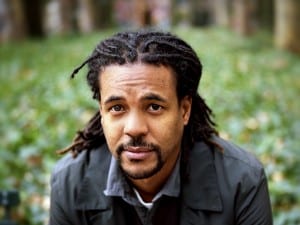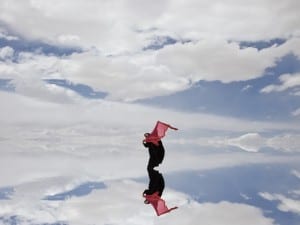Q&A
Can you tell me about yourself?
I’m a writer who has been working in film and television for a good number of years. I was a Fellow at the Sundance Institute’s Feature Filmmaker’s Lab. Black Water Rising is my first novel. I grew up in Houston, Texas, and have lived in Los Angeles for years. I’m also the mother of a two-year-old.
Black Water Rising is an interesting read; can you tell me how you came up with the idea behind the novel?
The opening chapter is based on an event that happened to my family years ago. When I was 10 or 11-years-old, my father threw a birthday party for my stepmother on a boat on Buffalo Bayou in Houston, Texas. He didn’t have a lot of money at the time, and it was the best he could do. We brought our own food, our own coolers of beer and soda and a boom box. It wasn’t much, but it was a party! When we got out on the water, we heard a woman somewhere in the brush along the bayou. She was crying for help, and then we heard gunshots. There was a debate on the boat about what to do. It was so dark on the water we couldn’t even really tell where the voice was coming from. In the end, my father made the decision to protect his family – his wife and child and the other children on the boat first. We called the police. The book takes that incident as a jumping off point. What would have happened if we had stopped that boat?
Houston in the 1980s sounds like a hectic place, what was it really like?
Houston in 1981 was a really interesting city. It was flush with oil money (this was two years before the bust that destroyed the city’s economy), and the city was getting international attention. Houston and the state of Texas seemed to represent the conspicuous consumption and the blind optimism of the early Reagan era. Also, Houston had its first woman mayor at the time. It was a city trying to transition out of the ugly South.
Tell me a bit about Jay, how did his character develop?
Jay represents my parents’ generation, and I think in some ways writing a character like him was an attempt to understand the people who raised me. I was a kid in the early 1980s in Houston. My parents had been college activists in the late 1960s and early 1970s and suddenly found themselves smack in the middle of the Reagan era. There was a tremendous cultural shift going on in the USA, a move from a focus on the political to a focus on the economic, as a possible path to upward mobility. Money, it was believed, could be its own kind of equality. My parents played the game. They worked hard, bought houses in the suburbs; both have been extraordinarily successful professionally. But I always felt that some parts of them got left behind. They didn’t talk about it much, but I think it was a challenging psychological shift for both of them, and I wanted to understand that better.
Black Water Rising confronts some of the big issues of our day, can you tell me what it was like writing about these contentious topics?
Well, the issues were all very personal to me, and even as the book deals with heady topics of race and history and corporate corruption, it’s also a very tender story about a man trying to heal old wounds, to come alive again. Jay’s life story helped to ground the book for me.
Looking at morality and ethics, did Jay “do the right thing” by jumping in the water to save Elise?
I would have loved Jay, even if he didn’t jump in the water (though I wouldn’t have had much of a book), just as I love my father for protecting my family and me all those years ago during my stepmother’s party. I think Jay did what was right for him in that moment – and that’s all we can ever really ask of people.
When should we, as individuals, get involved in other people’s lives?
When you’re certain you can live with the consequences of your actions – good or bad. Getting involved in other people’s lives can open us up to a whole lot of trouble – nor is it a given that what we think of as an act of chivalry will be appreciated by another person.
I see that you also write film scripts, what’s the transition been like between film and fiction?
I think years of writing scripts have been great training, in terms of structure and plot. I understand the mechanics of story very well. Also, being a screenwriter greatly influenced my decision to write the book in the present tense, which is part of what gives the book a cinematic quality. I’m a big fan of Pete Dexter, and I had read somewhere that he let his background in journalism influence his work as a fiction writer, which kind of gave me permission to use what I’d learned as a screenwriter as I wrote my first book.
What are your future plans?
I’m working on my second novel.




